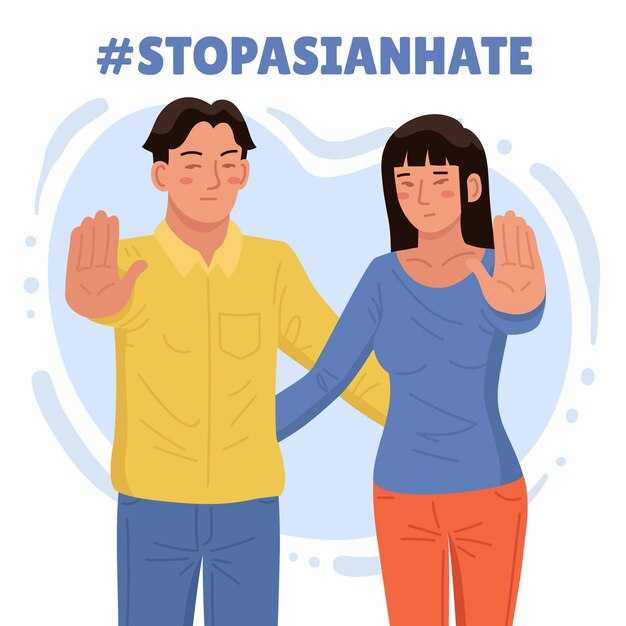To be honest, I’m embarrassed when I look back at the times people treated me badly and, instead of removing myself from the situation, I went out of my way to win their approval. It feels ridiculous in hindsight, and yet it’s a very real survival pattern called fawning. Fawning is one of the four common trauma responses alongside fight, flight, and freeze. It shows up as making yourself small, behaving as if nothing is wrong, or performing helpfulness in the hope that your kindness or usefulness will change the abuser. You try to be the self-sacrificing healer for someone who’s hurting you, swallowing the sting so you don’t show vulnerability. Have you found yourself doing that? It’s a frequent response for people with childhood trauma. The problem is that fawning often leads to a foggy state of mind where you can’t tell whether you are the cause of the conflict or whether you’re the one being hurt. Maybe you learned as a child to quiet yourself to keep a caregiver satisfied; as an adult you keep getting drawn into relationships that feel demeaning and then you wonder, “Is it me? Am I too difficult? Am I just a doormat?” The result is persistent self-doubt and low self-regard—and fawning usually doesn’t win genuine affection. People-pleasing doesn’t necessarily make others like you more.
Today’s letter comes from a woman I’ll call Vanessa. She writes: “Dear Anna, I’ve watched some of your videos about being attracted to the wrong people and trying to patch up poor romantic relationships. I’ve given up on romance for a long time for various reasons, but I still struggle in simple, everyday interactions. I have trouble even with acquaintances I see regularly. When someone is rude, instead of walking away, I keep trying to win them over, convincing myself their behavior isn’t that bad and returning to them. This has been a lifelong pattern.”
I want to pause and mark a few moments to revisit, but first let’s follow Vanessa’s story. She says the clearest example is her hairdresser: because of ongoing fights with her mother about her hair—fights that continue even now at age fifty—anything related to styling is fraught. She’ll find a competent stylist who is brusque or insulting and, rather than leaving, she’ll try to make that person like her. With one stylist she had to argue to get the haircut she wanted and ended the visit by overtipping. Later she decided not to go back: he talked over her, contradicted her, and was generally abrupt. She’d been trying so hard to be seen and acknowledged when she walked into the salon. She also goes for threading and waxing at the same place but doesn’t feel welcomed. Looking back she feels foolish. Vanessa adds she had a similar experience years ago with another rude, prejudiced hairdresser and still went back for two years. In other relationships she says that when she’s treated badly or rejected, she doesn’t leave; she clings and pleads for acceptance, and she hates that about herself.
She also told me she recently spent a month babysitting and petsitting for her brother while his wife was giving birth to their second child; during that time he was verbally abusive to her. There were moments she wondered if she deserved it. Friends told her they would have flown home after a week, but she stayed because she believed he needed her. Now she’s angry at herself for tolerating the abuse instead of shutting it down. She could see he was stressed, but she feels she shouldn’t have allowed herself to be mistreated because of his stress. Alongside anger she felt pity for him and frustration with her own emotional roller coaster and asked how to get herself straight.
First, thank you, Vanessa. I hear you and I believe you. Often we talk about “crap-fitting”—contorting ourselves to fit into unacceptable people or situations. People with C-PTSD frequently do this in romantic contexts, but it happens in friendships and services too because there’s a voice that says, “If everything feels wrong, maybe it’s me, or maybe this is the best I can get, so I’ll take it.” Fawning brings a corrosive energy that doesn’t engender authentic liking. I notice it in myself sometimes, and it makes me deeply uncomfortable when someone fawns at me—dancing around, anticipating every perceived need, interrupting and not really listening. That behavior tends to provoke irritation and distance. So if you’re a fawner and you sense impatience or irritation from others, it’s not necessarily all about you; part of the dynamic is that fawning elicits a brusque pushback.
Yes, there are rare ways the fawner contributes—perhaps a pattern of people-pleasing or carrying martyr-like pride in being able to “take it.” I once applied for a secretarial job and wrote on my cover letter that I was “thick-skinned,” thinking it was a virtue after a previous abusive job. The interviewer told me that’s not something to advertise. I get it now: you don’t want to telegraph that you’ll accept everything without protest. With C-PTSD, there’s constant self-questioning—“Am I overreacting?”—and this creates awkward, painful, and confusing interactions. The way forward is small, steady steps. Part of your role is to become honest moment-to-moment about what you’re feeling and what just happened, and to seek company with people who are also healing so you can get reality checks—“What did the hairdresser actually say? Did I overreact?” That kind of candid feedback helps.
Sometimes fawning arises from getting pulled into reenactments of earlier drama where boundaries were never allowed. For Vanessa, a childhood pattern of a parent criticizing her hair left an old trigger that flares with stylists. When triggered, you might present prickly or defensive energy that invites a stressful reaction from a hairdresser; the stylist may respond curtly, which confirms your old fear and ignites the loop again. Sometimes it’s simply that you repeatedly encounter unkind people; other times an old emotional flashback is coloring the present. If you see two rude hairdressers in a row, it could be your old trigger doing some of the work, drawing you into familiar dynamics where you either martyr yourself or fawn, provoking a snappy response. Perhaps I’m speculating, but these patterns resonate from my own experience: I, too, have dissociated in the hairdresser’s chair and I once had a perm go wrong at thirteen—the result was a burned, awkward haircut that my memory connects with a deeper fear about not being able to speak up.
Healing won’t always come with neat explanations for why you do what you do, but the path is the same: learn to soothe your triggers, practice expressing your true self, and develop the ability to set limits. That includes having the uncomfortable conversations—clarifying costs, asking that a different stylist handle your service because the last experience went poorly—things trauma survivors often avoid. Those pent-up emotions intensify interactions and make behavior seem inexplicable. For most C-PTSD problems the cure is sameness: get tools to name emotions as they arise—simply label them without trying to instantly fix them. “I’m afraid I’m being disrespected. I feel resentful because I worry they’re insulting me. I’m afraid I’m wasting money.” Put those sensations into words as part of a daily practice.
By the way, I teach a no-cost daily practice that combines writing and meditation; it’s offered on my website and linked in the description. If you sign up you also get invited to free Zoom calls every two weeks. It’s a free resource designed to help people like you calm intense feelings and begin the work of being authentic. I offer paid programs too, but the daily practice exists so everyone has access to useful tools. That practice helped rescue me from my own patterns and allowed me to begin living more honestly.
Have you ever tried entirely changing yourself into what you believed another person desired? That’s a hallmark of early-childhood trauma. Abandoning who you are to placate an abuser is one of the most damaging adult consequences of early harm. When someone abuses you, the last thing you need is to hand over your perceptions and power. I want to answer another letter now—this one from a woman I’ll call Leila. She writes: “Hi Anna. I’m getting divorced after a ten-month marriage that was very hard. I saw red flags before we married but rushed into marriage after three months for fear he would change his mind. I think I have C-PTSD from growing up with a highly critical mother who only showed affection when I obeyed. If I did anything different, love was withdrawn. My ex never appreciated my efforts; my hurt didn’t matter, my opinions didn’t matter, and everything I did was criticized. He repeatedly said he could do better because he’s young and handsome. Instead of leaving, I tried harder.”
I’ll come back to key moments, but I want to walk through more of her letter first. After ten months of marriage and six months separated while she tried to reconcile, she doubled down on being more obedient, respectful, understanding, and kinder to his family, yet he remained dissatisfied. She felt abandoned, unwanted, and worthless. She explained that she practices Islam—she doesn’t wear a hijab but prays five times a day and finds peace in the faith. She learned Islam from her parents but chose to explore it more at university. Her ex grew up in the Middle East until age 25; his family was judgmental and harsh toward her for not practicing Islam the same way they did. In their culture women were expected to be obedient and quiet. His family told her she didn’t belong in the Arabic community because she wasn’t born in the Middle East. She felt guilt and shame.
After the marriage fell apart she keeps wishing she’d done or said things differently, imagining that different behavior might have saved it. She reports being told to pack a bag and leave the house; she went to her parents, who then kicked her out because her mother was furious that she wanted to work on the marriage. She stayed in a hotel for two weeks until allowed back, then endured threats and emotional abuse from her mother that escalated into physical violence. When her mother hit her, she didn’t care about her head or the hurt; she felt she deserved the pain and felt numb. She left and paid her brother to stay with him for a while. The divorce is finalized, her contact with her mother is reduced, and she worries she may have escaped the abuse for now but would deeply believe she deserved any future mistreatment. She asks how to heal the abandonment wounds and stop ruminating and self-blame for the events that led to being kicked out by her husband and parents.
Leila, I’m so sorry you endured that. You may not yet fully recognize how egregiously you were treated. Let’s examine the details. Rushing into marriage in three months because you feared being left suggests a trauma-driven urgency to secure attachment—“If I don’t lock this down, I’ll lose him.” That pattern originates in early conditioning: when love was only given for compliance, you learned that changing your behavior would preserve connection. That belief can turn into a lifelong attempt to placate others to keep them from abandoning you. Your ex’s relentless criticism—dismissing your feelings, trouncing your opinions, claiming he could do better—reads as emotionally abusive. I can’t diagnose him, but the behavior resembles love-bomb-and-discard dynamics: an initial rush of warmth followed by devaluation. Your reaction—trying to be more obedient and compliant—fits the trauma pattern of trying to fix relationship problems by erasing yourself. But that approach rarely works in the long term. If someone’s committed to controlling or demeaning you, changing yourself won’t make them appreciate you.
You described being expelled from both your marital home and your parents’ house. You were literally abandoned. When your parents also rejected you for trying to save the marriage, that must have intensified your confusion: your mind wants to believe you can change the outcome by changing yourself, while the reality shows you were pushed out despite your efforts. From an outsider’s perspective, it looks like there was serious family conflict around the marriage—perhaps the abuse or dysfunction was worse than you can comfortably name yet. You said the family’s version of faith was inclusive, but their actions—criticizing you, excluding you, and physically abusing you—contradicted that. That dissonance is painful and confusing, and it can keep you stuck in self-blame.
When someone treats you as you described—telling you to pack a bag and leave—that’s abandonment and mistreatment, not your fault. You might be inclined to imagine you could have salvaged the relationship through further self-adjustment, but that’s classic C-PTSD thinking: “They would love me if I could be someone else.” It’s a ruinous belief that can start to erode your sense of identity. The good news is you can stop that pattern, but it requires naming the wound: you were abandoned and you internalized a sense of deserving mistreatment. That internalized shame and self-blame make it likely you’ll tolerate abuse in the future unless you do healing work to unlearn those beliefs.
Practical steps for you: cut off contact with the ex—it’s a healthy boundary. Pause contact with your mother, especially given the physical abuse. It’s time to claim space to be yourself, not the person who must bend to others’ criticism. You already have anchors: university education, a faith that gives you meaning. If you aren’t in therapy, find a trustworthy therapist to help you sort through the trauma, rebuild your sense of self, and practice boundaries. Seek supportive women friends and communities where you can both laugh and be held during hard nights. Recognize that abusive relationships create trauma bonds and withdrawal can feel like a drug detox—intense cravings and longing are normal. Build healthy supports to sustain you through the withdrawal.
You’ll have many emotions: sadness, fear, longing, shame. That’s normal. Structure your healing by using tools to process overwhelming emotions—like the writing-and-meditation practice I teach—so you can release fear and resentment safely. If you join the free daily practice I mentioned, you’ll learn writing and meditation techniques and be welcome on biweekly calls where we use the tools together; it’s all available without purchase in the description link. You’ll also benefit from groups like therapy or 12-step communities, or a circle of friends who can answer the phone late at night when pain is high.
When you find yourself tempted to contact the ex, that’s trauma speaking. In almost every case I’ve seen, reaching out to an ex like that does more harm than good. Build rituals for self-kindness instead—my friends use a phrase, “bunny slippers,” meaning, “be gentle with yourself today; take care.” Keep a pen and paper on you at all times so you can use the writing techniques to get hard feelings out, whether you’re triggered while shopping, at a party, or anywhere else. These simple tools act like a scuba diver’s tank of oxygen: they let you enter difficult spaces and still breathe.
One major curse of childhood abuse is the fog it creates when someone treats you poorly—suddenly you can’t tell whether you caused it or are being mistreated. If you tend toward dysregulation, you may find yourself exploding at people then later wondering if you were the one in the wrong. I recently answered a letter from “Chelsea” who described acting out in public when she was very slowly waking up from C-PTSD: instead of leaving a hurtful online thread about neighborhood gossip, she lashed out publicly and mentioned being snubbed by a neighbor months earlier. She acknowledges her retaliation was excessive, and now some neighbors refuse to talk to her. She’s torn about apologizing because those neighbors had also behaved badly.
I’ve been there too. Neighborhood groups online are a hazard zone—rumors, assumptions, and gossip escalate quickly. In Chelsea’s case a friend left dogs off-leash that chased a cat; neighbors blamed her and posted about it. Rather than quietly disengaging, she called them out publicly and revisited a past slight in the process. Of course that inflamed things. Looking back with insight is a good sign: she recognizes she may have exaggerated others’ motives and that she responded in a way that was hurtful. She wonders whether apologizing would be futile—would it simply open her to more attacks—or whether withholding an apology makes her equally culpable.
Here’s how I’d approach that: you can apologize in a way that’s clean and responsible without taking on their wrongdoing. Prepare a brief, direct apology delivered in person if possible (or privately), which simply owns your part and doesn’t rehash their offenses. For example: “I want to apologize for the way I responded online. I realize I may have attributed worse motives to you than were intended, and I’m sorry for my part in the hurt that came from that post.” Don’t bring up what they did—just own your behavior and offer a straightforward request for closure or future civility. Detach from any expectation that they must forgive or that your apology will fix everything. The goal is your internal peace, not changing their reactions.
In my experience, people rarely come back with a clean apology of their own; some will be indifferent or hostile. That’s okay. Taking responsibility and cleaning up your own mess gives you dignity and helps dissolve the shame that gnaws at you after an eruption. It also prepares you to handle future conflicts with more composure and choice, rather than the reactive flip-flops trauma drives. And by the way, in my house we joke that “the first to apologize wins”—being able to own your behavior quickly shows emotional maturity and frees you up.
A larger pattern I want to address is the feeling that mean people are everywhere—friends, relatives, coworkers, neighbors, bosses, partners. If you grew up with mistreatment, you learn to accept it as “normal,” to cram yourself into places where people demean you because you don’t expect better. That’s “crap-fitting.” Another reason mean people stick around is that trauma can numb you, blunting your sensitivity to mistreatment so you tolerate more than you should. Shame and guilt also make you accept poor treatment because you carry a belief that you deserve it. Sometimes clearing old wrongs—making amends or restitution where appropriate—can ease that sticky shame and help you stand taller.
You might also find you attract mean people because you’re overly tolerant or you fear abandonment. If you believe you must endure mistreatment to avoid being alone, you’ll stay in damaging relationships. That’s an abandonment wound; it becomes a self-fulfilling prophecy when you remain stuck. Healing requires tools to check your thinking: write the facts down, name feelings, and reach for external perspective from a therapist or steady friends. Confrontation isn’t always safe—sometimes exposing abuse to family made things worse for me—so choose carefully and seek guidance. But you can always start by breaking the wheel: stop the spinning cycle by taking a small, decisive action. Even if the only thing you can manage is stepping outside and moving your body, that often provides the momentum for a second action and then a third. One small action builds into many.
If you tolerate mean people, look at how you treat yourself. Small acts of self-respect—three nourishing meals, wearing clothes that make you feel good, scheduling goals—begin to shift how others experience you. Life changes through many tiny choices, taken consistently. If you need structure, consider free tools like the daily practice—simple writing techniques to unload painful thoughts and a meditation to settle the nervous system. It was the practice that helped me, and I offer it publicly in case it helps you too.
In short: you’re not meant to live surrounded by mean people. Trauma conditions us to accept less, but you can reclaim choice by learning to name feelings, practice boundaries, seek trustworthy help, and take tiny, steady actions. If you want a free, practical tool to process overwhelming emotions, try the daily practice I described—paper, pen, and a method to write it out and then meditate. The technique is simple but powerful, and it’s helped many people calm their nervous systems and begin to make healthier decisions. [Music]


 Přestaňte tolerovat lidi, kteří se k vám chovají jako k hovnu (4 video kompilace)">
Přestaňte tolerovat lidi, kteří se k vám chovají jako k hovnu (4 video kompilace)">

 The 5 Stages of a Dismissive Avoidant’s Mind When You Go Silent">
The 5 Stages of a Dismissive Avoidant’s Mind When You Go Silent">
 What To Do When Someone Makes You Feel Creeped Out">
What To Do When Someone Makes You Feel Creeped Out">
 Avoidants Texted You After Silence? This Brutal Reply Will Destroy Them | Jordan Peterson">
Avoidants Texted You After Silence? This Brutal Reply Will Destroy Them | Jordan Peterson">
 Why does the Anxious partner have to sacrifice for the Avoidant?">
Why does the Anxious partner have to sacrifice for the Avoidant?">
 Anxious Attachment leads to Heartbreak until you do this…">
Anxious Attachment leads to Heartbreak until you do this…">
 The Hidden TRUTH: Why Avoidants Disrespect You – How to Pass Their TEST | Avoidant Attachment Style">
The Hidden TRUTH: Why Avoidants Disrespect You – How to Pass Their TEST | Avoidant Attachment Style">
 Rozhovor s Dr. Jamesem Pennebakerem">
Rozhovor s Dr. Jamesem Pennebakerem">
 Try These Emergency Measures to Re-Regulate Anywhere">
Try These Emergency Measures to Re-Regulate Anywhere">
 Stop Helping your Wife.">
Stop Helping your Wife.">
 Harsh Signals (You Don’t Realize You’re Sending) Push Men Away">
Harsh Signals (You Don’t Realize You’re Sending) Push Men Away">